“If you want the answer—ask the question.”
~ Lorii Myers
Highlights
This is a topic of high interest to people with autoimmune disease, and there’s a lot of misinformation online. So, this article is thorough and well-researched and that makes it long! I do recommend reading the whole thing if you are considering trying CBD oil, but here are the highlights:
- Hype vs. Research: There’s a lot of hype around this product, and the research is new and unproven. But funding has increased, and over 200 clinical trials are ongoing, so we’ll learn more in coming years.
- Individual Results Vary: Some people with autoimmune disease find CBD oil very helpful in alleviating their symptoms. Others experience no benefit, and still others experience negative effects.
- Brand Quality Varies Greatly: It can be overwhelming to sort through the advertising to find truly high-quality products. I share what to look for below.
- Options Can Be Overwhelming: There are different types of CBD oil with varying contents and potency. There are also different delivery methods: tinctures, capsules, edibles, vaping, topicals, etc. I share more about those choices below.
What Is CBD Oil?
CBD oil is a hot trend right now. When I shop in my local health food store, there are CBD-infused beverages sold next to the kombucha, and CBD edibles on display at the checkout counter. One of our local farmers stopped farming vegetables and turned his fields over to hemp. And on the internet, everyone seems to be talking about the potential health benefits of this alphabetical oil. So, what is it? CBD stands for cannabidiol. It’s one of the natural plant compounds found in marijuana and hemp.
Hemp vs. Marijuana CBD Oil – How Do They Differ?
Hemp and marijuana are both part of the Cannabis genus of plants, and they naturally contain over 100 chemical compounds. THC and CBD are the most famous ones, and the amount of THC determines whether a plant is classified as hemp or marijuana. THC is the psychoactive compound that gives marijuana its “high” effect. Marijuana strains contain anywhere between 5-35% THC, and they’re bred with that in mind. Hemp, on the other hand, only contains trace amounts of THC (less than 0.3%) – too low to have a psychoactive effect.
CBD is a non-psychoactive compound, which means it doesn’t get you “high”. Hemp usually contains more CBD than marijuana, but CBD oil can be extracted from both plants. Knowing the source of your CBD matters for a few reasons. Many CBD oils are full-spectrum extracts. That means they contain all the plant compounds, not just CBD. This is done intentionally to get the synergistic benefit of the entire plant. They call this the “entourage effect”. However, this means that marijuana CBD oil will contain some THC as well, unless its a pure CBD isolate. Legally there are differences, too. Marijuana CBD oil is still illegal in many states, whereas hemp CBD oil is mostly legal nationwide. What do I mean by “mostly”? The Farm Act was passed in December 2018 and federally legalized hemp farming in the United States. However, there are still regulations hemp farms need to follow to comply with federal and state laws. Trustworthy brands follow those laws.
What Does the Research Say About CBD Oil and Autoimmune Disease?
- Separating Hope from the Hype: When I first dove into the research, I expected to find numerous studies showing the effectiveness of this magical oil. After all, why else is it so popular? The hope is that CBD oil will have anti-inflammatory, pain-relieving, anti-spasmodic, immunosuppressive, and anti-bacterial benefits, among others. But research is very limited. Most studies have been done in cell cultures or mice, not human beings. Dosage in these research studies tends to be very high – much higher than a person would use at home. They often involve injections instead of oral medications. And they’re also often combined with THC. This is still hopeful research, because it might lead to pharmaceutical alternatives that have fewer side effects than other medications. And there are over 300 studies currently ongoing, so we’ll know more soon. In the meantime, we’re at the early stages of learning what this oil can and cannot do.
- Inflammatory Bowel Disease: Research is new, but CBD injections appear to be the most effective. Rectal application is moderately effective. Oral dosing hasn’t proven effective. Here are the details: In a mouse study on colitis, intraperitoneal injection of 10 mg/kg CBD once daily caused significant improvement, reducing inflammation, lesions, and disease activity. Intrarectal application of 20 mg/kg once daily showed improvements as well, but not as much as injection. Unfortunately, oral dosing at 20 mg/kg did not lead to any improvements at all. (Note: these doses aren’t the equivalent of 10-20 mg in humans, since the dose was by weight. A 140 lb. person weighs 63 kg, so the comparable dose would be 630 mg.) These results were confirmed in other studies. In a cell culture + mouse study for ulcerative colitis, CBD injection decreased inflammation and immune system activity. In a human trial of patients with Crohn’s disease, a low dose of 10 mg. orally twice a day was tested (equivalent to what a person could easily take at home). It was shown to be safe but ineffective.
- Multiple Sclerosis: There are many studies showing benefit when using a combination of THC and CBD, but none showing benefit for CBD alone. Here are the details: the prescription drug Sativex is a mouth spray with a ratio of 1:1 THC to CBD. There have been many human studies showing its effectiveness in reducing spasticity and improving quality of life. And a recent mouse study showed this same combination also reduces inflammation and autoimmune activity. This study also tested each compound separately, and found that neither THC alone nor CBD alone was effective.
- Pain: Most studies addressing pain use a combination of THC and CBD with mixed results, but the NIH just announced $3 million in grants to look at CBD oil’s potential for relieving pain by itself. And there is one recent study showing some hope: In a rat study on osteoarthritis, topical CBD was applied for four consecutive days to the painful joint. They tested 4 different doses (0.6, 3.1, 6.2 or 62.3 mg/day). The lowest two doses weren’t effective, but the highest two were. Here’s the great part: 6.2 mg and 62 mg achieved very similar results (showing no need for the very high dose in this application).
- Anxiety: Anxiety is a common side effect of autoimmune disease, and there have been some hopeful studies in this area. Two looked at high doses of oral CBD oil (400 mg and 600 mg) and both were shown to be effective at reducing anxiety. A recent study looked at lower doses: (25-175mg), and it showed effectiveness as well. What I especially like about this study is that it personalized dosage for each patient, starting low and increasing as needed. CBD has also been shown to increase anxiety if the dose is too high or too low for the individual. So finding the optimal dose is essential.
- Leaky Gut: Since leaky gut is a precursor to autoimmune disease, this is another exciting area of study. A human cell culture study showed that a combination of THC and CBD reduced intestinal permeability. CBD alone hasn’t yet been studied, but I’d be curious to see the results.
Testimonials from People with Autoimmune Disease
So, we know that research is limited. This is common when it comes to supplements and alternative health. That’s where self-experimentation comes in. I asked my Facebook and Instagram communities to share their personal CBD oil experiences. Here are some excerpts:
- Positive Results
- Leslie: Rheumatoid arthritis. I have been taking a very high quality broad spectrum hemp extract capsule. It took a while for me to notice, but I do feel as if it has made a significant difference in how I feel. Specifically both the frequency and intensity of my flares are reduced. I can also tolerate more foods than I could before taking CBD.
- Jaclyn: Hashimotos and endometriosis. I have been using full spectrum CBD oil since last summer. I also had a knee injury last spring that was causing quite a bit of inflammation. I noticed a pretty immediate result with my knee pain and inflammation. After a few weeks, I was sleeping better at night, noticed less pain and inflammation in the rest of my body, and my anxiety was easing up. And a really welcome result was less endometriosis pain!
- Alissa: Multiple sclerosis. I found that it was helpful for pain, but most helpful for sleep. The pills I tried were good, the oil tasted not so good, very earthy, to say the least. I did try a few options that didn’t work so well, so making sure you find an option that is reputable and has transparent testing is important. I also found that CBD balm was incredibly helpful for pain as well, more so than oral. It improved my localized pain within 30 minutes.
- Lori: Scleroderma. I have experienced daily joint pain and insomnia for years. I sleep SO much better and my daily joint pain is reduced.
- Pam: Fibromyalgia and Hashimoto’s. I started at the lowest dose of high quality CBD in MCT oil. It worked right away for sleep and gradually helping with pain. I am on my second month and doubled my dose. I have reduced my regular pain meds by more than half.
- Stacy: Ankylosing spondylitis. The full spectrum pills I have taken do not seem to cut the pain as much as I would like when I’m having a flare. The benefit, to me, is that it removes a lot of the anxiety and hopelessness I feel when my mobility is severely limited. I feel positive and courageous and more patient when I take it, which is what I need as much, or more, than pain management per se.
- Negative Results
- Melanie: Hashimotos. Tried CBD oil earlier last summer with no noticeable results. Went up in dosage after a few weeks, and it started giving me headaches. I was bummed. I really had hoped to see change in my joint pain as well as occasional anxiety.
- Jen: Hashimoto’s. It made me so anxious and angry and ugh. I was hoping it would address anxiety and just chill me out a bit. I also wondered about any possible effect on hair loss if my stress level went down. Very disappointed, but a reminder for me that natural doesn’t mean its okay for all.
- Teresa: Connective tissue disease: I tried several different brands and levels of CBD and hemp products and didn’t find any relief or benefit. One brand (great brand with solid product) even caused my allergies to get worse (runny nose, etc.).
- Heather: No known autoimmune conditions but gut, thyroid, and other symptoms. CBD from hemp and cannabis gives me an itchy skin rash on eyelids and elbows (eczema?). I don’t really notice a benefit so the rash isn’t worth it.
- Elsje – It makes my osteoarthritis worse.
- Neutral – No Change
- Pam: Rheumatoid arthritis. I tried hemp CBD last year for 45 days. Because my RA is severe and still very active, I tried a fairly high dose. For me, the result was nil. Nada, zilch. An expensive experiment. Food is a much better medicine in my body.
- Amy: Connective tissue disease. I may not have given it enough time, but after 2 weeks of that terrible tasting oil and no improvements, I stopped using it.
- Michelle: Lupus, Hashimoto’s, fibromyalgia, and chronic migraines. I tried daily CBD oil for one month and noticed nothing at all.
- Laura: Alopecia. We tried it for a few months, high strength, no positive results.
- What is N=1?
- As you can see above, individual results varied, even among people with the same diagnosis. Sometimes we wish there was one solution that worked for everyone – it would be so much simpler! But when it comes to health overall, and autoimmune health specifically, it’s all about figuring out what works for you. N=1 is a scientific experiment involving just one person: you. There’s a growing movement in the medical community to honor this individuality, because it shows up in pharmaceutical trials as well. If you’d like to give CBD oil a try, keep reading. Below I share what to look for in a trustworthy brand.
What Are the Potential Side Effects?
In the testimonials above, some people experienced increased anxiety, headaches, inflammation, and allergic reactions. Other side effects reported in medical studies include diarrhea, fatigue, nausea, vomiting, and sleepiness. These aren’t necessarily common, especially at low doses, but they are possible. CBD is also best avoided during pregnancy or breastfeeding, since it has the potential to end up in breast milk and its effect on infants is unknown. CBD oil can also interact with medications, reducing their efficacy. Consult with your physician before trying CBD if you are on any prescriptions.
CBD Oil Options & Dosage
- CBD Isolate vs. Full-Spectrum: Most CBD oil is full-spectrum unless advertised otherwise. Full spectrum oils contain the CBD alongside all the other beneficial compounds naturally found in the plant (cannabinoids, flavonoids, antioxidants, phytonutrients, and terpenes). The belief is that they work synergistically together for greater benefit than CBD alone. It’s called the entourage effect. This is why Marijuana CBD and Hemp CBD oils are very different products. Hemp CBD has only trace levels of THC (less that 0.3%). Marijuana CBD will have higher levels of THC unless it’s a CBD isolate. CBD isolates are pure CBD, separated from all other plant compounds through a strong chemical process. So, CBD isolates are always THC-free, even when derived from marijuana. CBD isolate usually comes in a powder and is often used in pharmaceutical applications, but you can also find isolate powders sold online, as well as products with the isolate added to a carrier oil. These oils are usually advertised as 99% CBD (Note: This doesn’t mean the oil is 99% CBD, because the isolate is diluted in the carrier oil. It just means there aren’t other plant compounds in the oil. Advertising is confusing!)
- Liquid: Most CBD is sold as a liquid, which is sometimes called a tincture. You take this sublingually, placing drops under the tongue and holding them there for 30-60 seconds to enhance absorption.
- Capsule: If you don’t like the flavor of CBD oil, capsules are a flavorless option, but it will take longer to feel their effects (between 30 minutes and a few hours). They also contain more ingredients – read the label carefully.
- Edibles: CBD is being added to lots of food and drinks available in stores, but be cautious of the other ingredients. Adding CBD to something doesn’t automatically make it healthy. If you want to try edibles, you can also make them yourself by adding CBD oil to your favorite gummy recipe or smoothie.
- Vaping: This is the fastest way to feel the effects, but I don’t recommend it. It’s too potentially dangerous for the lungs.
- Topicals: CBD gels, creams, and balms are a great way to apply CBD to a specific area, like a painful joint, muscle, or tendon. You can also use plain CBD oil as a topical.
- Potency: CBD oil packaging can be confusing. The milligrams listed on the front of the bottle is the amount in the entire bottle, not the amount per serving. Look at the back label to see the amount per serving. However, the number on the front of the bottle is helpful when comparing prices. A high-potency CBD oil will contain more servings per bottle than a lower-potency oil of the same size.
- Dosage: The general recommendation is to start low and slow. Start with the minimum dose and see if that has any effect before increasing. Optimal dose varies greatly between individuals, and it takes some experimenting to find the best dose for you. Consult with your medical team for advice on dosing.
Choosing a Trustworthy Brand
If you’ve decided you want to give CBD oil a try, you will quickly find yourself overwhelmed with choices. There are hundreds, if not thousands of companies selling CBD oil and some are more trustworthy than others. Here are some things to look for:
- Ingredients: The best brands have a very short list of ingredients: CBD extract, and a quality carrier oil like hemp oil, MCT coconut oil or extra-virgin olive oil. They might also include a natural oil or extract for flavor. Avoid brands with artificial sweeteners, sugars, emulsifiers, or other chemical additives.
- Extraction method: There’s work involved in getting the CBD out of the plant. The most common method uses chemical solvents (which you don’t want). CO2 extraction is a chemical-free method used by the higher-quality brands. If a company won’t tell you their extraction method, they’re using chemicals. CO2 extraction is more expensive, and companies proudly advertise it when used.
- Farming method: Choose a company that sources its hemp from certified organic and licensed farms. This narrows the field substantially. Very few companies have organic certification. Instead, they’ll tell you they use “natural” farming methods and show you pictures of their plants in a beautiful location, but that doesn’t mean anything. Plants farmed with pesticides and industrial methods can still claim to be natural, because they’re growing plants.
- 3rd party testing: The CBD market is booming and unregulated, and that is a breeding ground for fraud. Look for a company that uses an independent lab to test its products and then publishes those reports on their website. The testing should be multi-faceted. It should prove potency – that you are getting what you are paying for in terms of CBD content. It should also prove what’s NOT there. Lab reports should show the oil is free from pesticides, heavy metals, and microtoxins.
- My recommended brand: NuLeaf – Save 25% with Code PHOENIX. They meet all the criteria above. They sell a simple yet high-quality product with only 2 ingredients: full-spectrum hemp extract (lab-tested for CBD potency), and organic hemp seed oil as the carrier oil. The dosing is precise with 3 mg CBD per drop, allowing for clear self-experimentation. This is also more potent than most oils on the market. For example a 30 ml. bottle of NuLeaf contains a total of 1800 mg of CBD (600 drops). A 30 ml. bottle of most brands contains only 300 mg CBD. Keep that in mind when comparing prices. NuLeaf’s oil can be taken sublingually (under the tongue) or topically (applied to the skin wherever there is pain.) They also sell a CBD balm with only 2 ingredients: full-spectrum hemp extract, and organic shea butter. And if you prefer capsules, they sell those, too. However, the capsules have 5 ingredients: full-spectrum hemp extract, organic hemp seed oil, cassava root extract, purified water, and vegetable glycerin.
Save 25% with Code PHOENIX
Save 25% with Code PHOENIX
Save 25% with Code PHOENIX
Disclaimer
There’s always a disclaimer in place on this website, but when an article mentions medications or supplements, I feel it needs repeating. I am neither a doctor nor a nutritionist, so this article isn’t a substitute for medical advice. I’m simply a woman trying to maximize her own health and sharing what I learn along the way. Some people experience benefit with CBD oil, and others don’t. Always consult with your healthcare team when considering new supplements or treatments.
You May Also Be Interested In
Credit: image at top of page purchased from iStock.

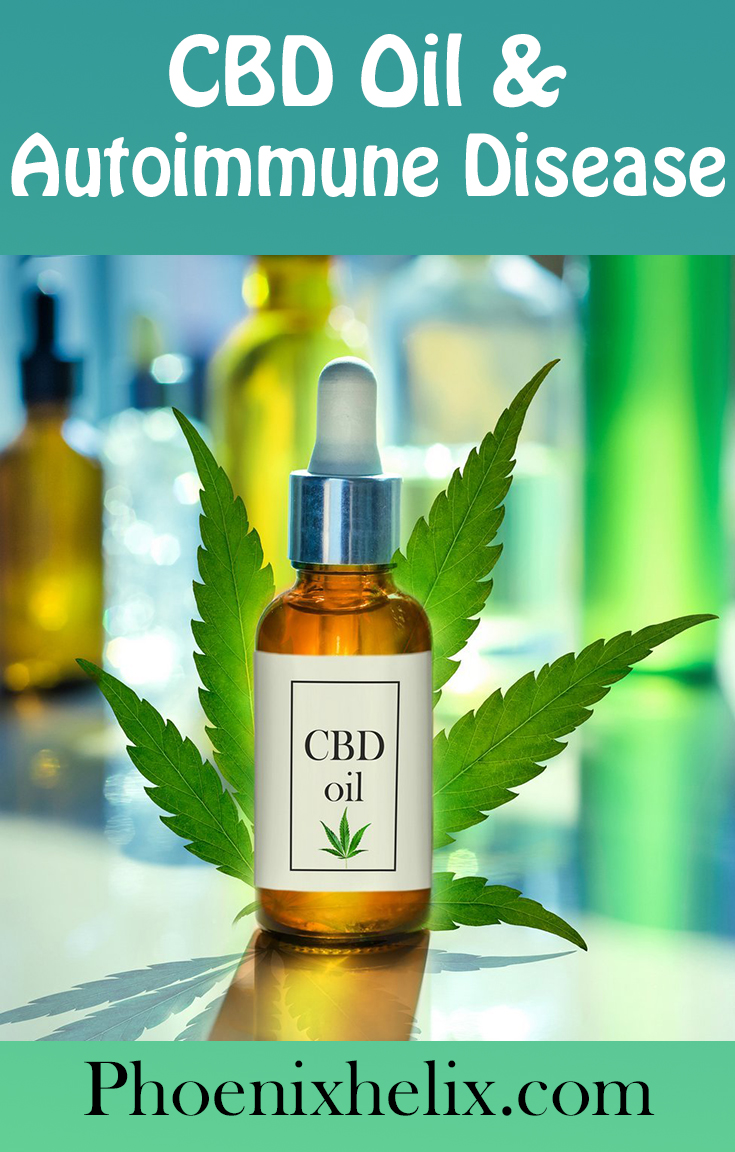
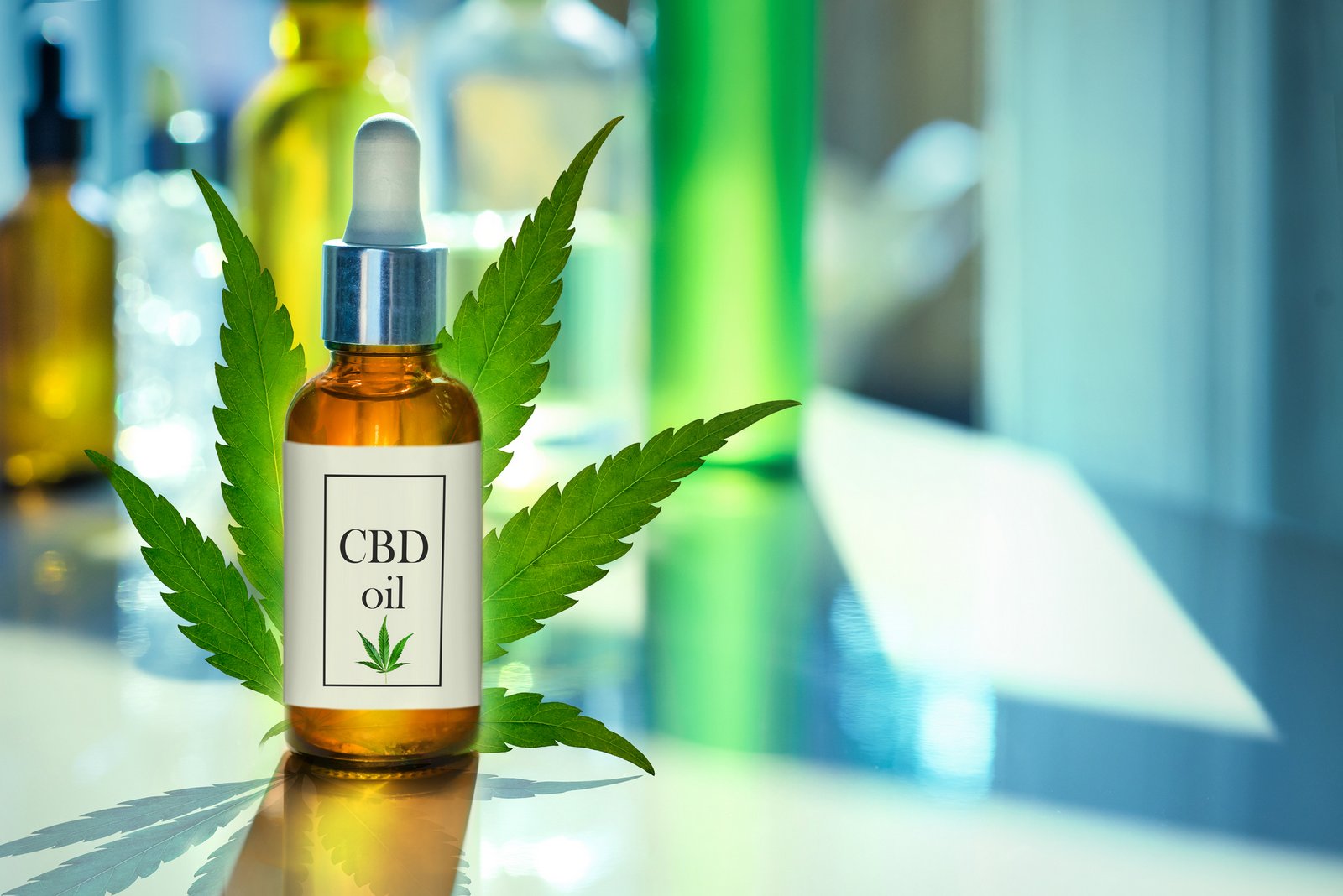
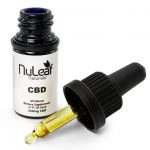
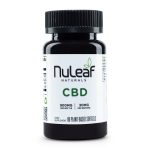
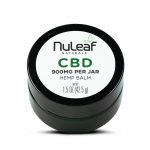
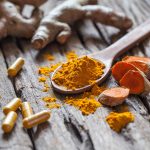

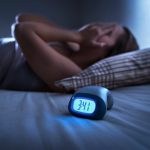




Thanks Eileen for researching CBD! For several years I’ve lived with Hashimoto, Chronic Fatigue (comes in bouts), GERD, PTSD, etc. Hemp-derived CBD oil is helping my sleep.
Sleep has been a problem for years & now even more so: husband & adult son are ill & I’m one of the long-Covid people (BEFORE Covid, I was relatively ok, when not into an autoimmunity funk. Mostly, I’d reached a point where I could do yoga 2x weekly yoga, bicycling, some hiking & gardening. After Covid, I’m diagnosed with asthma, COPD, enlarged aorta & sleep apnea. However, I am very grateful to be alive. I had a severe case. (A few months ago, my younger brother-in-law died from Covid. )
I prefer the CBD tincture since, for me, it’s easier to titrate the dose, on any particular night. Dosing has always been a challenge, no matter what the substance. For example: At night, I can do 2/3 -1 mg of timed-release melatonin but more than that sets off anxiety, sick headache and a sort of drunken=ness. Yet, I have friends who nightly use 10 mg and up of melatonin!
I don’t know if you looked at Lazarus Naturals (Oregon) 3rd party tested, etc. but they are extra-generous to veterans & people with disabilities.
Oh Ruth. You’ve been through so much! I’m so sorry you’re struggling with Long COVID Syndrome. If you haven’t listened to episode 175 of my podcast, the focus was Long COVID recovery. There might be some helpful information for you. In the meantime, thank you so much for sharing what has worked for you. Wishing you, your husband, and your son wellness on every level and a beautiful holiday.
One more “CBD Oil test” to add to the list. Gene suffers from early cognitive decline (forunately mostly reversed now using Functional Medicine and hard work) and periphal neurophy/numbness/tingling/pain in his feet and toes (unchanged.) At the time of our big property downsize and move to a small condo in a new town he exhausted himself, had great anxiety and inability to sleep. I gave him 2 drops of CBD oil and it helped him to sleep soundly at night and recover, which was our most immediate goal. (We tried a type CBD oil with no TCH from the health food store after I consulted with them for about 45 minutes to select the best option for him.) A few weeks later we tried a CBD cream rubbed onto legs and feet that a family member makes (we live in a state where growing the plant and CBD oil w/ TCH is legal.) My husband used the cream on his feet and within two uses, he felt extreme anger, anxiety and was just plain mad at the world (not his usual easy – going head in the clouds personality – even his boss commented on his abrupt personality change.) He tried the cream several times over the course of the next week with the same results. He hated how he felt and is off of all CBD now.
Thanks for sharing Gene’s experience, Donna. So it sounds like he responded well to Hemp CBD oil orally for sleep, but had a negative response to a Marijuana based CBD cream? Everyone’s so unique. This is a great example of self-experimentation to discover what does and doesn’t work for you.